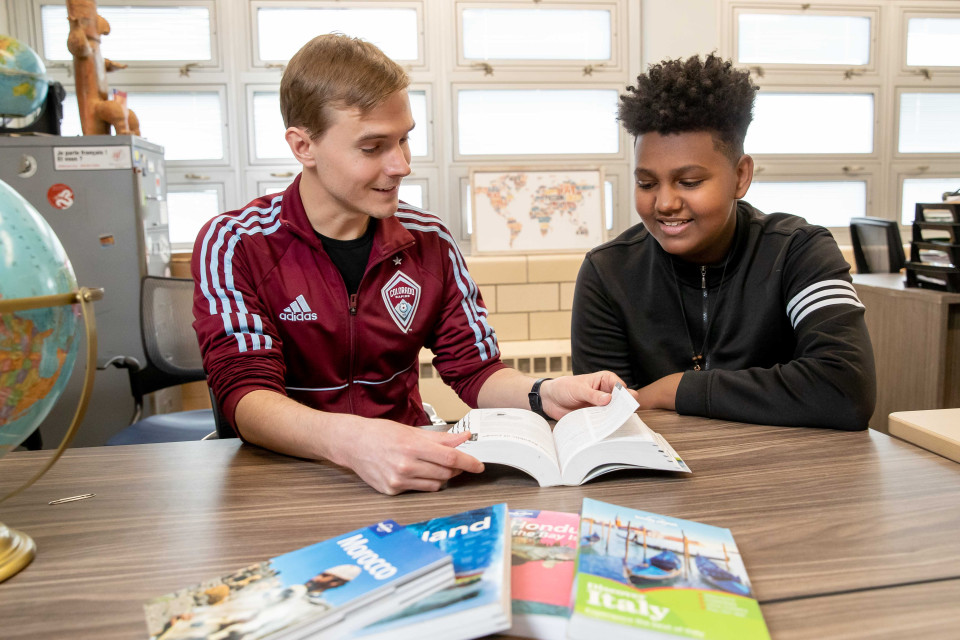You are here
DPS uses high-impact tutoring grant to spur improvement
DPS uses high-impact tutoring grant to spur improvement

DPS is offering free tutoring for students in ng. Free for kids in kindergarten through 12th grade thanks to COVID relief funds.
A $2 million ESSER grant is funding high-impact tutoring in Denver Public Schools that is resulting in higher-than-expected growth on students’ statewide assessments.
“We weren't looking for just scores. We were also looking at their confidence level, their engagement level, you know. And right now, all the data is pretty promising.” Susan Cheng, a program manager on the Expanded Academic Learning team at DPS
For the 2021-22 school year, DPS contracted with the vendor Cignition to provide virtual math tutoring for 1,069 students in fourth through eighth grade. An example of how the tutoring is working – at the end of the year 82% of participating students with IEPs achieved greater growth than expected on their annual state assessments tests.
The district also hired University Instructors to pilot a literacy tutoring program for kindergarten through eighth graders.
The Colorado High-Impact Tutoring Program was created in 2021, when the Colorado legislature passed House Bill 21-1234 (PDF), providing nearly $5 million a year for grants to be given to schools in the 2021-22 and 2022-23 school years. Additionally, the Colorado State Board of Education allocated additional ESSER funding to expand the reach of the state program during the first two years.
Among the criteria for the high-impact tutoring grant, learning groups must consist of no more than four students that meet at least three times a week during the regular school day, the tutor must be highly qualified and the curricula must be of a high standard.
If high-impact tutoring is done correctly, learning can increase by as much as 15 months in a year’s time, according to a report on the first year of grant funding for High-Impact Tutoring in Colorado schools. This approach “has consistently yielded a significant positive impact on students from all backgrounds, including students furthest from opportunity,” the report says.
For each school, the district considered how many students are English language learners, African American/Black, Hispanic/Latinx, experiencing homelessness, receiving free and reduced lunch, and receiving special education services.
Cignition provides virtual tutoring in math to third through eighth graders in 21 schools. University Instructors provides in-person early literacy tutoring to kindergarten through third graders in 18 schools.
Connor Hatton, program coordinator at University Instructors, said the students who do well in the small tutoring groups also tend to do well in class.
“These are really confidence-building sessions, as well,” he said. “You know, finding the confidence to make mistakes and to learn. That's definitely something that when we are training our tutors and our instructors, we emphasize that we want them taking the confidence that they're gaining in our groups and carrying it into the classroom.”
Another Program Coordinator at University Instructors, Robert Rizzacasa, gave an example of the progress he observed in one small group. At the beginning of the school year, some of the students were reluctant to read and would argue over whose turn it was to read aloud. In April he observed the same group reading together.
“And by the end of the session, they had to leave to go to recess. And one of the girls in the group was just like, ‘I don't want to go to recess. I want to stay here and read with you.’” Rizzacasa said. “They were enjoying reading so much together and just the rapport that they built with our instructor.”


Connect With Us





